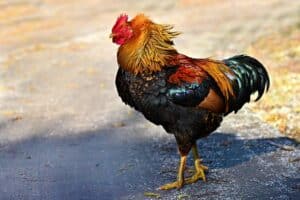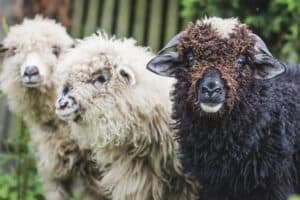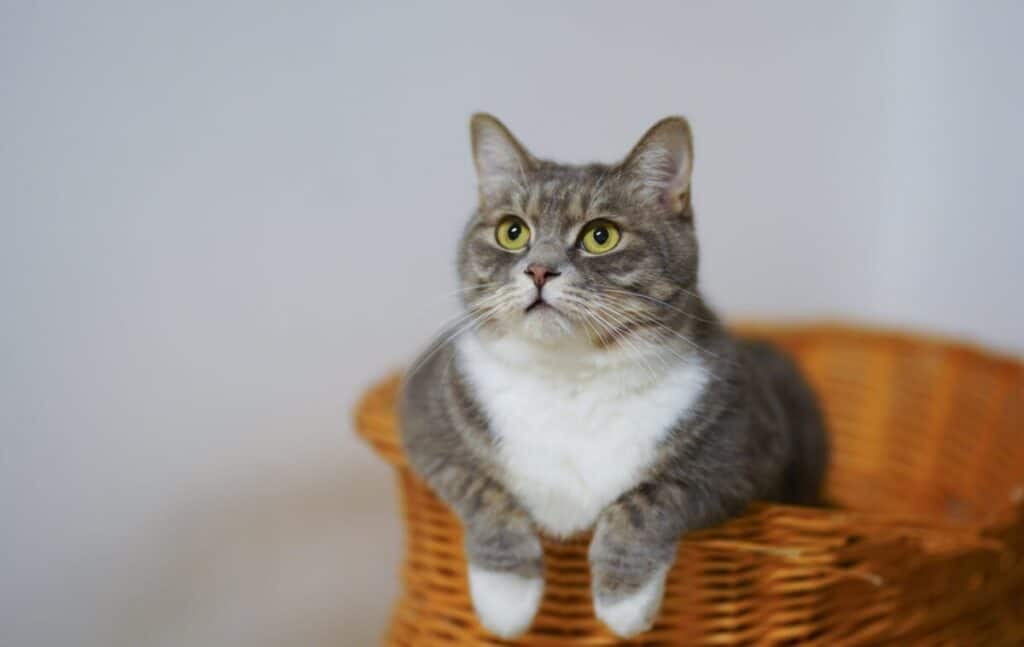English Idioms about animals with meaning
In the realm of figurative language, animal metaphors abound in the English language. In this article, we will look at 17 extremely common English language idioms about animals, along with their meanings. Use these to make your English really natural – you can also find videos to see more examples!
Have you ever thought about animal idioms and metaphors in your first language? Without a doubt, different cultures and languages attribute different personalities and characteristics to different creatures. In English-speaking nations, lions are often brave, and foxes sly. However, it’s important to note that the meanings of idioms and metaphors utilizing these animal expressions may differ.
In English, metaphors and idioms about animals often entail animal symbolism, capturing elements of personality or appearance. Catty people are mean and vicious, whereas chickens are easily scared. Eels and snakes cannot be trusted, but butterflies are very friendly. A black sheep is unique, whereas a fox is sexy! People might flock together, but be careful not to put the cat among the pigeons or you might find yourself a fish out of water.
You can learn even more English idioms and metaphors about time and other topics on our website.
In this upcoming article, immerse yourself in an extensive collection of English animal idioms and metaphors, fostering your language learning journey. Animal metaphors are used everywhere, from home to the office, and on television or in print. Not only that but there are also questions for you to answer!
1. Early bird and Night owl

an early bird:
someone who wakes up early
a person who arrives early to every event

a night owl:
someone who stays awake until late into the night
a person who is active in the evening but lazy in the morning
someone who likes evening parties and events
Example 1:
“Sheena’s such an early bird. She wakes up at 5am every morning and goes jogging.”
Example 2:
“I’m more of a night owl than an early bird. I like going out all night, then sleeping until noon the next day.”
Example 3:
“The early bird catches the worm” – an old English proverb.
Questions:
Are you a night owl or an early bird?
Do you know anyone who is a night owl?
Do you know anyone who is an early bird?
2. Bullheaded

Bullheaded:
stubborn and unthinking
unwilling to change opinion
Example 1:
“Sarah and I were planning to have a picnic tomorrow, but it’s going to rain. Now I think we should go to a restaurant but she is being bullheaded and still wants to have the picnic!”
Example 2:
The company was losing important employees due to low motivation, but management was too bullheaded to make any policy changes.
Example 3:
“I knew William was making a mistake, but he was too bullheaded to listen to my advice.”
Questions:
Are you bullheaded, or are you open to new opinions?
Can you remember a time you were bullheaded? What happened?
Who is the most bullheaded person you know?
3. Sing like a canary

To sing like a canary:
to tell the police everything you know about a crime you were involved in
telling the authorities everything you know
- Compare this idiom with rat. These two phrases carry the same meaning, but with a different nuance and perspective. A canary is a positive word used by police or authorities: a criminal who tells everything they know and helps solve a crime is a useful canary.
Example 1:
“After the bank robbery, police arrested the getaway driver. It wasn’t long before he was singing like a canary. They arrested everyone else within three days.”
Example 2:
The police promised the drug dealer a lighter sentence if he told them who his supplier was, so he sang like a canary.
Example 3:
The school headmaster called each child in one-by-one, and eventually one child sang like a canary and told him exactly how they broke the school computer.
Questions:
When you were a child, did your teacher ever catch you and your friends doing something wrong? Did you sing like a canary?
Can you think of a crime movie where the criminals are caught because one of them sang like a canary?
4. Put the cat among the pigeons
Put the cat a mong the pigeons:
mong the pigeons:
to do or say something that causes trouble
cause many people to be angry
This is a British idiom!
Example 1:
“Rachel has started dating her sister’s ex-boyfriend. It’s really put the cat among the pigeons!”
Example 2:
“Management put the cat among the pigeons when they said there would be no Christmas bonuses this year. The whole office is angry!”
Example 3:
The school put the cat among the pigeons when they announced all parents must purchase a new laptop computer for their children. Parents are extremely upset at the expense.
Questions:
Has any surprising piece of news put the cat among the pigeons in your family?
When was the last time a politician said something that put the cat among the pigeons?
What has put the cat among the pigeons in sports news recently?
Alternative forms:
Throw the cat among the pigeons
Set the cat among the pigeons
5. Rain cats and dogs

to rain cats and dogs:
to rain extremely heavily
Example 1:
“Quick, grab an umbrella before we leave. It’s raining cats and dogs outside.”
Example 2:
“It’s raining cats and dogs. There’s no way we’ll make it to the airport on time!”
Example 3:
It was only raining lightly when Tim left work, but by the time he got home it was cats and dogs.
Questions:
What do you do when you’re at home and it’s raining cats and dogs?
When was the last time you were caught outside and it was cats and dogs?
Would you prefer the weather to be blazing hot, or raining cats and dogs?
How are you doing? Can you remember the 5 English idioms about animals above?
Did you know there are over 25,000 idioms in the English language? Take your time learning them, but when you’re ready, check out more English language idioms about animals with meanings below!
6. Catty

Catty:
uses mean words, makes cruel comments, spiteful
very rude – be careful when using this word!
※Often used to describe women, this term can be considered sexist and should not be used unthinkingly. However, it still frequently appears in magazines and books.
Example 1:
“It looks like Jessica’s been enjoying the donuts recently!”
“Oh, don’t be so catty. She looks good.”
Example 2:
The meeting didn’t go well, and ended with angry people making catty comments about each other.
Example 3:
If Steven feels he is being criticised, he tends to get catty.
Questions:
Are you good at taking criticism, or do you get catty?
How do you react if someone makes a catty remark about you at work?
Who is the cattiest person you know?
Common forms:
be + catty Jane is so catty today
get + catty Don’t get catty!
7. Chicken

chicken:
a coward, easily scared
<negative nuance>
※Often used to challenge someone to try something they are scared of. Can be taken as an insult, or a joke.
Example 1:
“Scott is such a chicken. There’s a spider in his apartment so he is staying at a hotel!”
Example 2:
“Let’s do a bungee jump together.”
“What? No way!”
“Come on, don’t be a chicken!”
Example 3:
“I have to work Saturday this weekend. I was too chicken to say no to her boss.”
Questions:
When was the last time you were too chicken to do something?
Are you too chicken to skydive?
Who is the biggest chicken you know?
Common forms:
be + a chicken
“Tom is a chicken”
be + too chicken
“He is too chicken to ask her on a date”
8. Dinosaur

a dinosaur:
extremely old and out-of-date
someone who doesn’t understand modern things
<negative nuance>
※Only used as an insult. Usually said about someone or something, but not to someone.
Example 1:
“My dad is such a dinosaur. He doesn’t have a cell phone, and still uses a pager!”
Example 2:
“The computers in my office are dinosaurs. They can barely run Microsoft Word.”
Example 3:
“The dinosaurs in management won’t move with the times, and now our company is badly behind the competition.”
Questions:
Do you keep up-to-date with technology, or are you too much of a dinosaur?
Are there any dinosaurs in your office with old-fashioned ideas?
Is your phone new, quite old, or a total dinosaur?
9. As slippery as an eel

As slippery as an eel:
cannot be trusted, devious
<negative nuance>
Example 1:
“I’m sure my daughter has a secret boyfriend, but she’s as slippery as an eel and I just can’t find out who it is.”
Example 2:
“Never lend Spike money. He’s as slippery as an eel and will constantly find a reason not to pay you back.”
Example 3:
The Prime Minister, slippery as an eel, avoided answering questions regarding the latest scandal.
Questions:
Do you know someone as slippery as an eel, someone you have trouble trusting?
What politicians or celebrities are slippery as an eel, doing bad things but never being punished?
Have you ever had to be as slippery as an eel to get out of trouble?
- In spoken language, the first “as” is sometimes removed: “Mia is slippery as an eel.”
10. A catch (fish)

(Quite a/a real) catch:
someone who is a great romantic partner
a desirable person
※Used to describe both looks (she’s gorgeous), personality (she’s so nice), or wealth (she’s rich)
Example 1:
“Jane’s new boyfriend is quite a catch. He’s a banker with a massive house!”
Example 2:
In this month’s magazine: 7 signs the person you’re dating is a real catch!
Example 3:
A doctor or a lawyer is a good catch, so can easily find a wealthy partner.
Questions:
In your opinion, what makes someone a real catch?
Are you quite a catch? Why or why not?
Who do you know that is a real catch?
How many of the ten English idioms about animals with meanings can you remember?
When you’re ready, there are even more idioms below!
11. Fish out of water

a fish out of water:
someone who is uncomfortable in a situation
a person who is unsuitable for their role and responsibilities
- Rather than a negative nuance, a fish out of water is helpless and you pity them
Example 1:
“When I was a child I had to change schools. I felt like a fish out of water in the new school: I got into trouble, I couldn’t get along with the teachers, and I had no friends.”
Example 2:
“Scott was a great manager, but once he was made director he was a fish out of water. He couldn’t handle the stress, and soon quit.”
Example 3:
The party was full of people who knew each other, and Delilah felt like a fish out of water. She didn’t recognise a single face.
Questions:
Do you feel like a fish out of water at parties, or are you good at meeting new people?
If you had to look after 10 children for a day, would you be able to handle it or would you be a fish out of water?
What situations make you feel like a fish out of water?
Common forms:
be + a fish out of water
He was a fish out of water in the big city
feel like a fish out of water
Jane felt like a fish out of water in her new job
12. Fox/Foxy

a fox:
a physically attractive woman
foxy:
sexy, attractive
- This term is only used to refer to women, not men. Use this term only when you are confident it is appropriate.
Example 1:
“Jennifer is such a fox.”
“I know, right!”
Example 2:
“There was a foxy lady across the bar, but I was too chicken to talk to her.”
Example 3:
Foxy Lady – a song by the Jimi Hendrix Experience, 1967.
13. Flock (birds, goats, sheep)

to flock:
a large group of people gathering together
a crowd drawn together by something interesting or exciting
- a flock is the term for a large group of birds, goats, or sheep
Example 1:
Millions of tourists flock to the Eiffel Tower every year, bringing with them large amounts of cash.
Example 2:
“I would love to go to the beach this August, but it’s just too crowded. It seems like the whole country flocks there.”
Example 3:
People from all around the world flocked to see the football world cup.
Questions:
What events do people flock to in your hometown?
What is the next big event people will flock to?
Are you comfortable around flocks of people?
Common forms:
flock to
People flocked to the band’s final concert
flocks of <types of people>
The convention drew flocks of book-lovers
Flocks of anime fans travel to Akihabara every year
14. Pig

a pig:
a slob, a dirty person
a greedy person
<negative nuance>
a police officer
<negative nuance>
- While pig can mean both a greedy, dirty person and a police officer, the two terms are not related. Referring to a police officer as a pig is negative and disrespectful, but does not mean they are dirty or greedy.
Example 1:
“Simon is a pig. All he does is sit at home in his underwear eating pizza.”
Example 2:
“I ate the whole cake by myself! I’m such a pig.”
Example 3:
“Hey, share the dessert, it’s for everyone! Don’t be a pig.”
Questions:
Have you ever been a bit of a pig and eaten too much?
Do you know anyone who is a pig, who is greedy and refuses to share?
Do you know a pig who is dirty and smells bad?
15. Rat

to rat on:
to tell the police about a crime, to report bad behaviour to authorities
betraying someone by revealing their bad behaviour to others
<negative nuance>
a rat:
someone who betrays a criminal organisation to the police
someone who tells authorities about someone else’s bad behaviour
<negative nuance>
- compare with sing like a canary. These two phrases carry the same meaning, but with a different nuance and perspective. A rat is a negative word used by criminals, describing someone who betrayed them.
Example 1:
The Mafia boss knew there was a rat in his organisation, and until he found out who it was he would have to be careful.
Example 2:
“I broke the vase and my little brother ratted on me to my parents!”
Example 3:
“I’m going to tell the teacher that you copied my homework!”
“Don’t be a rat!”
Questions:
When you were a child, did you ever rat on your friends to get out of trouble?
Has anyone ever ratted on you when you needed them to keep a secret?
Can you think of a movie where criminals are trying to kill a rat?
How many of these fifteen English idioms about animals with meanings can you remember?
When you’re ready, there’s a final two below!
16. Black sheep

a black sheep:
an unusual or unique character within a group or family
someone who doesn’t belong
<can have a negative nuance>
※This term traditionally described a person who caused their family shame or embarrassment. Today, however, the meaning can also mean simply unique or different.
Example 1:
“Karl is the black sheep of his family. All his parents, brothers, and sisters are doctors or police officers, but he wants to be a singer.”
Example 2:
The Nolan brothers are Jonathon and Christopher, both famous Hollywood directors, and Matthew, the black sheep who is in prison for kidnapping.
Example 3:
“Anna was always the black sheep of our friendship group. She was always studying so hard, while we were always talking about boys!”
Questions:
Who was the black sheep of your family?
Do you know any celebrity families with black sheep who cause trouble?
Do you think it is better to fit in with your family, or to be the black sheep?
17. Snake in the grass

a snake in the grass:
an untrustworthy person who pretends to be your friend
a sly person who hurts other people behind their back
<negative nuance>.
Example 1:
“My brother is a real snake in the grass. I told him about a job I wanted, and he secretly applied for it too.”
Example 2:
“I just heard that Sophia is secretly dating Lisa’s boyfriend. Lisa has no idea!”
“That’s awful. What a snake in the grass.”
Example 3:
Todd had always been a snake in the grass. Even as a child, he spread nasty rumours about his friends, to stop them from becoming more popular.
Questions:
Have you ever discovered a trusted friend was just a snake in the grass?
Who do you know that might be a snake in the grass?
Have you ever been a snake in the grass, betraying a friend for your own benefit?
Common forms:
be + a snake in the grass
James is a snake in the grass
a snake
James is a snake
How did you do?

Have you learned all the idioms about animals and English animal metaphors, along with their meanings? Were you able to answer all related questions with confidence?
How did you answer the questions? In your head? Or did you speak your answers aloud? Of course, the best thing you can do is to write your answers down!
Learn these English language idioms about animals with meanings, and take your English to the next level, but remember, we have many other pages with examples of English language idioms with meanings on our site.



